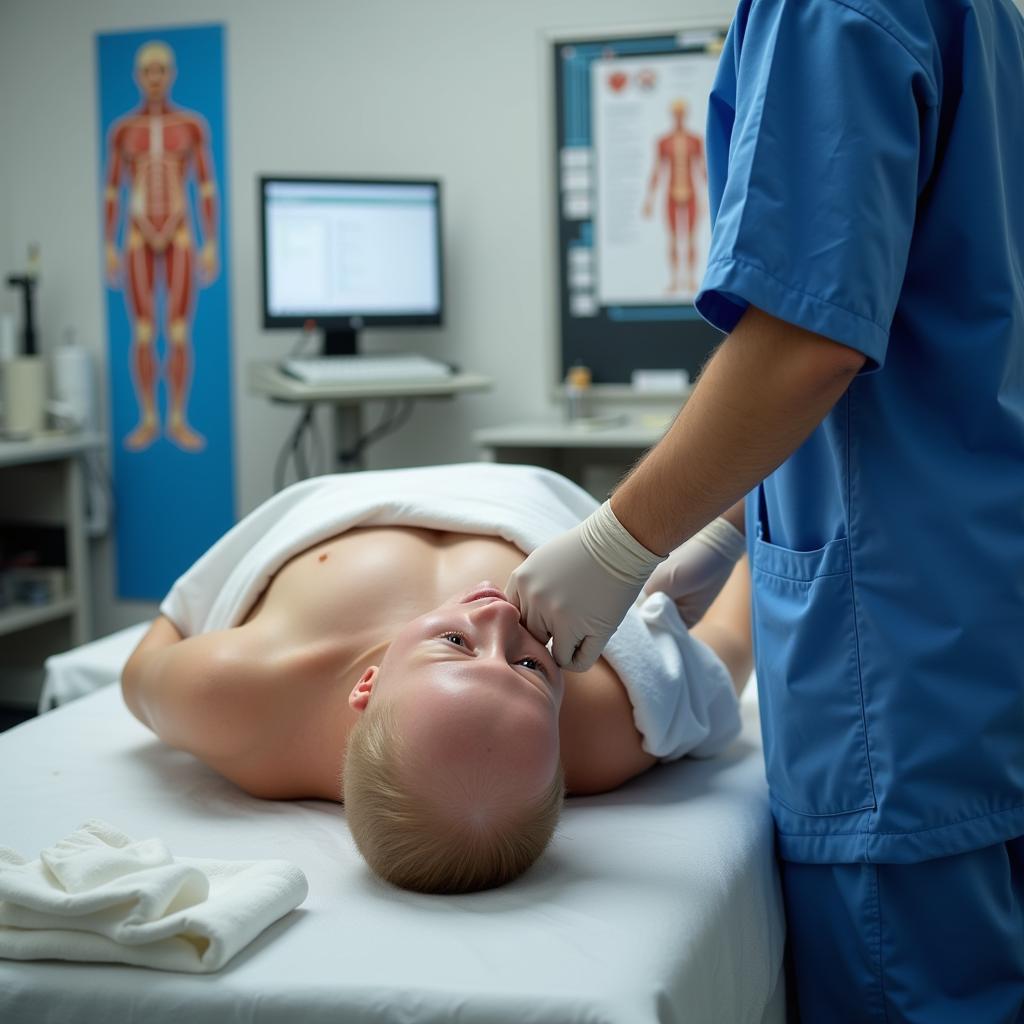The term “Cadaver Society” often evokes a sense of mystery and perhaps even discomfort. It refers to the organized systems and practices surrounding the donation and use of human bodies after death for medical education, research, and surgical training. This article explores the crucial role cadaver societies play in advancing medical knowledge, dispelling common misconceptions, and highlighting the profound impact of body donation on healthcare.
The Vital Role of Cadaver Societies in Medical Education
Cadaver societies are essential to medical education, providing future doctors and surgeons with invaluable hands-on experience. Working with human cadavers allows students to understand the intricate anatomy of the human body in a way that textbooks and models simply cannot replicate. This direct experience is crucial for developing surgical skills, understanding anatomical variations, and gaining a deeper appreciation for the complexities of the human form. They provide the foundation upon which medical professionals build their knowledge and expertise.
The respectful and ethical treatment of donated bodies is paramount within these societies. Strict protocols and guidelines are in place to ensure the dignity of the deceased is maintained throughout the entire process, from donation to cremation or burial.
Addressing Common Misconceptions about Cadaver Societies
Misunderstandings and myths surrounding cadaver societies are often rooted in fear and a lack of accurate information. One common misconception is that bodies are treated disrespectfully. This is simply not true. Cadaver societies operate under strict ethical guidelines, treating donated bodies with the utmost reverence and respect. Another misconception is that bodies are sold for profit. Again, this is false. Donation is a selfless act, and the bodies are used solely for educational and research purposes.
Open communication and transparency are crucial in addressing these misconceptions. Cadaver societies often offer public educational programs and resources to demystify their work and promote understanding of the importance of body donation.
 Ethical practices in a cadaver lab
Ethical practices in a cadaver lab
The Impact of Body Donation: A Gift of Life and Knowledge
Donating one’s body to science is a profound act of altruism. It is a gift that has an immeasurable impact on the advancement of medical knowledge, the training of future healthcare professionals, and ultimately, the lives of countless patients. Through body donation, individuals can contribute to groundbreaking research, the development of new surgical techniques, and a deeper understanding of human health and disease. This selfless act leaves a lasting legacy, extending far beyond one’s lifetime.
The impact of body donation is often felt on a very personal level by medical students. The experience of working with a cadaver fosters a deep sense of respect for the human body and reinforces the responsibility they have as future physicians.
How to Become a Body Donor: Making Arrangements and Considerations
Becoming a body donor involves pre-registration with a designated institution, often a university medical school or a specific body donation program. It’s important to discuss your wishes with your family and loved ones, as their consent is typically required after death. Specific procedures and documentation vary depending on the institution and location, so it’s essential to gather information and make arrangements in advance. Many programs provide detailed information packages and answer frequently asked questions to guide potential donors through the process.
Donating your body to science is a decision that deserves careful consideration and thorough research. Understanding the procedures and legal requirements beforehand ensures a smooth transition for your loved ones after your passing.
Conclusion: The Enduring Importance of the Cadaver Society
The “cadaver society,” though a term that may initially seem unsettling, represents a vital component of medical progress. By facilitating the respectful and ethical use of donated bodies, these organizations empower medical education, research, and ultimately, the improvement of healthcare for all. Understanding the crucial role of cadaver societies allows us to appreciate the profound gift of body donation and its enduring impact on the future of medicine.
FAQ
-
What is a cadaver society?
A cadaver society manages the donation and use of human bodies for medical education and research. -
Are bodies treated respectfully in cadaver societies?
Yes, strict ethical guidelines ensure the respectful treatment of donated bodies. -
How can I become a body donor?
Contact a university medical school or body donation program to learn about pre-registration. -
Is there a cost associated with body donation?
Typically, there are no costs associated with body donation. -
Can my family override my decision to donate my body?
Family consent is often required, so discussing your wishes with them is crucial. -
What happens to the body after it has been used for medical education?
The body is typically cremated or buried, according to the donor’s wishes and the program’s policies. -
Can anyone donate their body?
Certain conditions, such as infectious diseases, may preclude donation. Contact a donation program for specific eligibility criteria.
For further assistance, please contact us at Phone Number: 02043854663, Email: [email protected] Or visit our address: Zone 34, Bac Giang, 260000, Vietnam. We have a 24/7 customer service team.